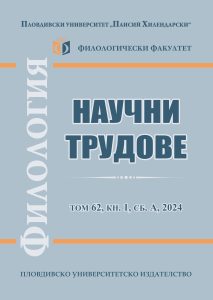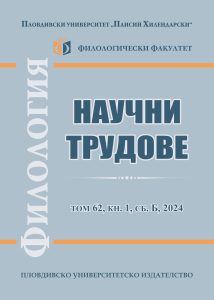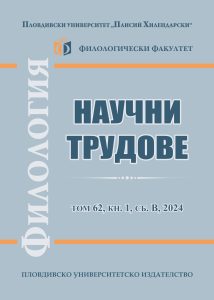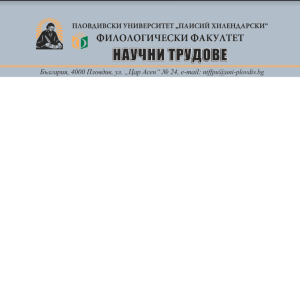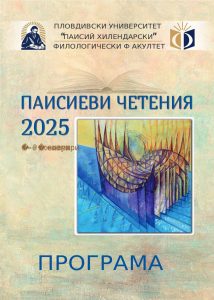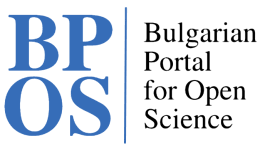VOL. 61, BOOK 1, PART А, 2023, pp. 66 – 75 Full text (Bg)
Author: Krasimira Aleksova
Affiliation: St. Kliment Ohridski University of Sofia
Abstract
In the article I present 3 types of non-inferential uses of the conclusive in the modern Bulgarian language. The first type can be called “weak knowledge” of the speaker who expresses as their own statement about common facts, without the speaker themself witnessing the events. The second case is observed in indirect speech when using mainly the tenses of the past plan. Then the conclu-sive expresses the integrated feature of indirect information and competes with the renarrative. The third case represents a transposition of the conclusive in the field of the indicative. The speaker expresses with the conclusive an expressive, emphatic personal affirmation of witnessed facts from the past.
Key words: evidentiality, conclusive/inferential, renarrative, plan of the past, plan of the non-past


